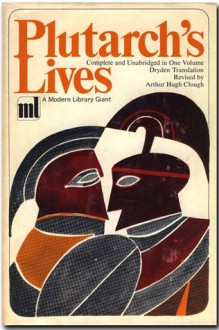
Roughly 1800 years ago, a biographer and historian decided to compare the great men of Greece and Rome to one another to give his readers inspiration to follow their example or what to avoid. Parallel Lives by Plutarch chronicles the lives of the greatest men of the ancient world and the times they lived in.
To show the influence of character—good or bad—of the great men of more remote past of Greece and the more recent past of Rome was Plutarch’s main aim in his biographies of these great men especially when he compared them to one another. Yet throughout his writing he shows the times these great men lived to the benefit of readers today that might know the overall history, but not the remarkably interesting details or events that general history readers might never know about. The usual important suspects like Alexander, Julius Caesar, and their like but it was those individuals that one never heard of today especially those Greeks between the end of the Peloponnesian War and its takeover by Rome save Alexander. This revised edition of the John Dryden translation contains both volumes in one book resulting in almost 1300 pages of text thanks to the fact that they added four lives that Plutarch wrote independent of his parallel pairs which included a Persian monarch, yet this printing is of poor quality as there are missing letters throughout which does slow reading down for a moment.
Parallel Lives is a fascinating series of biographies of individuals that in the second century AD were the greatest men in history to those living at the time, a few of which have continued to our time. Plutarch’s prose brings these men to life as well as the times they live in and influenced which history readers would appreciate a lot.

 Log in with Facebook
Log in with Facebook 
 tor
tor







